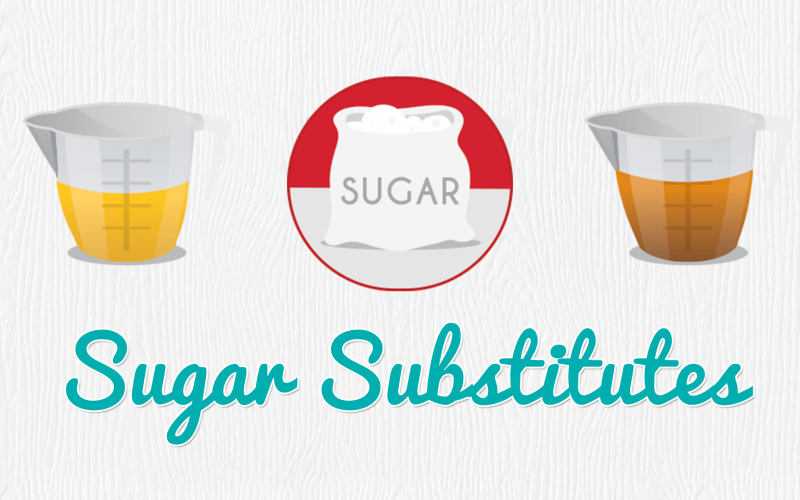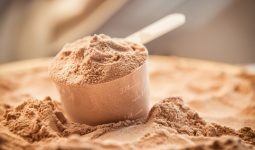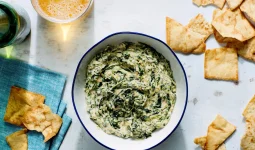Sugar is a common ingredient in many of our favorite treats, but it can be difficult for those looking for healthier alternatives to know where to turn.
Fortunately, plenty of surprising substitutes for sugar can help you create delicious desserts without the added calories and unhealthy side effects.
This post covers the most popular sugar substitutes, what makes them great, and how to use them in recipes. Read on to learn more!
If you’re looking for a way to reduce your sugar intake, you may be surprised to learn that there are many alternatives available.
We’ll explore the most surprising substitutes for sugar and how they can be used instead of regular sugar.
So if you’re looking for a natural way to sweeten your food and drinks without the extra sugar, read on to learn more!
Do you love the taste of sweets but don’t want to indulge in the processed sugar that can harm your health? If so, you’re not alone.
Many people are trying to find ways to satisfy their sweet tooth without consuming processed sugar.
Luckily, plenty of substitutes are available that can provide the same sweetness without all the negative side effects.
Read on the top substitutes for sugar that you can use to satisfy your sweet tooth without guilt.
Are you trying to cut down on sugar in your diet but still craving something sweet? You’re not alone! Sugar can be addictive and hard to give up.
Fortunately, plenty of natural and healthier alternatives to refined sugar won’t add extra pounds to your waistline.
We’ve compiled a list of ten delicious sugar substitutes that have added health benefits.
From fruit purees to natural sweeteners, we’ve got you covered. So, get ready to kick your sugar cravings to the curb and try out these yummy substitutes!
1. Yacon Syrup
Yacon syrup is a sweetener made from the yacon plant native to South America. It has a similar taste to molasses or caramel and is often used as one of the substitutes for sugar.
One of the unique benefits of yacon syrup is that it contains a type of fiber called fructooligosaccharides (FOS), which the body cannot digest.
FOS helps promote healthy gut bacteria and can also help regulate blood sugar levels.
Yacon syrup is also low in calories, with about half the calories of sugar.
However, it is important to note that yacon syrup should be consumed in moderation, like all sweeteners.
Yacon syrup can be used in various ways, such as baking or topping yogurt or oatmeal. It can also be used as a substitute for maple syrup or honey in recipes.
Keep in mind that yacon syrup is not as sweet as sugar, so you may need to use it slightly more to achieve the same level of sweetness.
When purchasing yacon syrup, make sure to choose a high-quality brand that is organic and free of additives.
Some brands may mix yacon syrup with other sweeteners or fillers, which can negate its health benefits.
Overall, yacon syrup is a great sugar substitute option for those looking to cut back on their sugar intake and improve their gut health.
2. Molasses
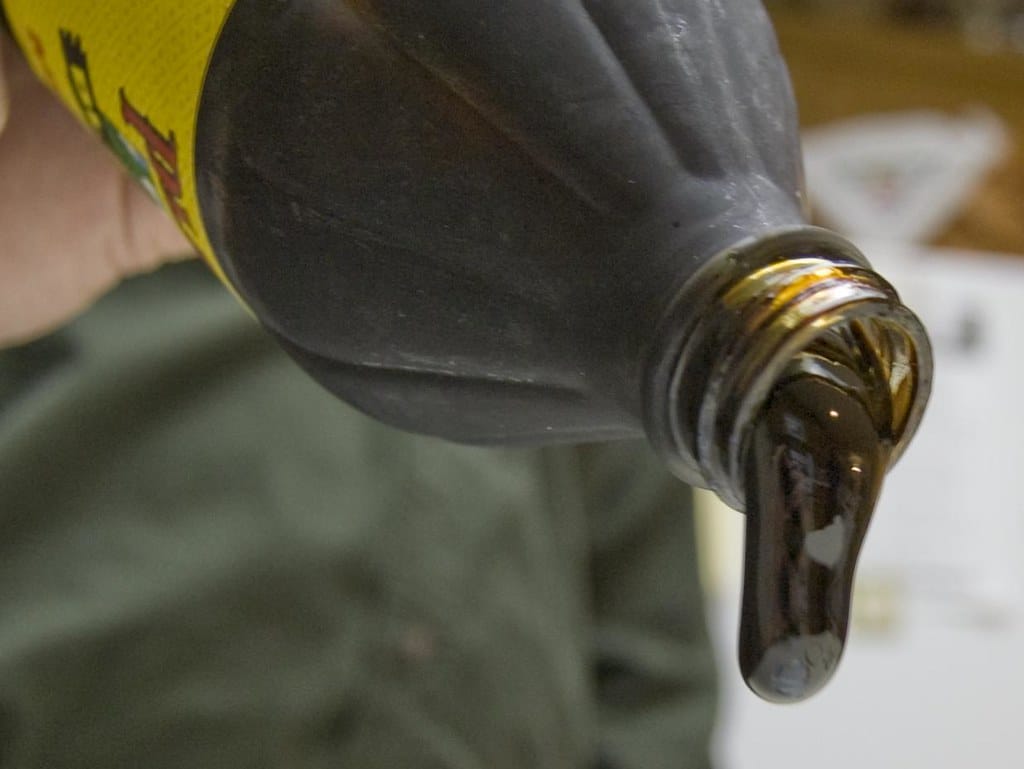
Molasses is a thick, dark syrup that’s derived from the sugar cane plant. It has a robust, earthy flavor that can add depth and richness to baked goods and other dishes.
But the best part about molasses is that it’s a healthier alternative to regular sugar.
Molasses is rich in iron, calcium, potassium, and other essential minerals that your body needs.
In fact, just one tablespoon of molasses can provide up to 20% of your daily recommended intake of iron.
Additionally, molasses has a low glycemic index, which means it won’t cause a sudden spike in blood sugar levels as regular sugar does.
Several different types of molasses are available, including light, dark, and blackstrap molasses.
Light molasses is the sweetest and mildest of the three, while blackstrap molasses is the most robust and bitter.
Depending on your taste preferences, you may want to experiment with different types of molasses to find the one that you like best.
One great way to use molasses is in baking. It’s among excellent substitutes for sugar and can add depth and complexity to cookies, cakes, and other sweet treats.
You can also use molasses in savory dishes, such as marinades, sauces, and dressings. Its rich flavor pairs well with meats, vegetables, and grains.
Overall, molasses is a delicious and nutritious substitute for sugar. Try incorporating it into your diet and see how it can enhance the flavor of your favorite dishes.
3. Honey

Honey is a natural sweetener that is one of the great substitutes for sugar. Not only does it add sweetness, but it also has many health benefits.
Honey is known for its antibacterial properties, making it great for soothing a sore throat or fighting off a cold.
It also contains antioxidants that help to protect the body against damage caused by free radicals.
When using honey as a sugar substitute, it is important to keep in mind that it is still a form of sugar and should be used in moderation.
One tablespoon of honey contains 17 grams of sugar, which is similar to the amount found in one tablespoon of white sugar.
However, because honey is sweeter than sugar, you may be able to use less of it in your recipes.
Honey is a great addition to your morning tea or coffee or drizzled over your favorite yogurt or fruit.
It can also be used in baking as a substitute for sugar. When using honey in baking, it is important to reduce the liquid in the recipe by about a quarter and to lower the oven temperature by about 25 degrees Fahrenheit to prevent over-browning.
Overall, honey is a delicious and healthy alternative to sugar that can be used in various ways.
Try adding it to your favorite recipes for a natural sweetener with added health benefits.
4. Stevia
Stevia is popular among substitutes for sugar, known for being both natural and low-calorie.
It is extracted from the leaves of the stevia plant, which is native to South America.
Stevia is available in both powder and liquid form, and its sweetness can be up to 300 times sweeter than sugar.
This means you only need to use a tiny amount to sweeten your food or drink.
One of the benefits of using stevia is that it does not raise blood sugar levels, making it an excellent option for those with diabetes.
Additionally, studies have shown that stevia may have some health benefits, including anti-inflammatory and antioxidant properties.
Stevia is also heat-stable, making it a great option for baking. However, be sure to check the packaging for any specific instructions on how much to use in baking, as it can be more potent than sugar.
It is worth noting that some people may find that stevia has a slightly bitter aftertaste.
If this is the case, try a different brand or experiment with different forms of stevia until you find one that you like.
Overall, stevia is a fantastic substitute for sugar that offers a natural and low-calorie alternative.
Whether you are looking to sweeten your tea or bake a cake, stevia is an excellent option to satisfy your sweet tooth.
5. Maple Syrup
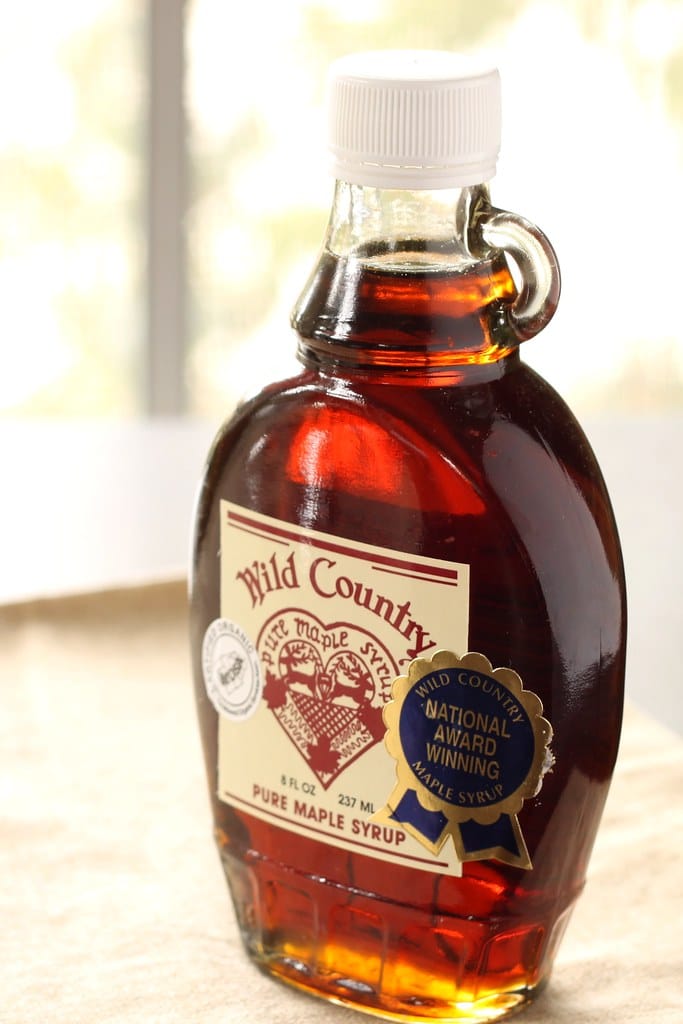
Maple syrup is a natural sweetener that comes from the sap of maple trees.
It’s a great substitute for sugar because it has a lower glycemic index, meaning it doesn’t spike your blood sugar as much as sugar does.
However, Maple syrup is a healthier alternative to sugar and adds a rich, nutty flavor to your favorite dishes. You can use it in baking, on pancakes, or even as a glaze for roasted vegetables.
When using maple syrup in baking, it’s important to remember that it’s a liquid and may alter the consistency of your recipe.
To compensate for this, reduce the amount of other liquids in your recipe or add some extra flour.
Just like honey, purchasing pure, organic maple syrup rather than processed varieties containing additives or corn syrup is best.
Next time you’re craving something sweet, reach for the maple syrup as a substitute for sugar. Your taste buds and body will thank you!
6. Coconut Sugar
Coconut sugar, also known as coconut palm sugar, is a natural sweetener derived from coconut palm trees’ sap.
This unrefined sugar has a caramel-like flavor and is often used as one of the substitutes for sugar in recipes.
One of the benefits of coconut sugar is that it has a lower glycemic index than regular table sugar.
This means that it doesn’t cause spikes in blood sugar levels as traditional sugar does.
As a result, it may be a better choice for those who are diabetic or trying to manage their blood sugar levels.
Coconut sugar can be used in various ways, from sweetening coffee or tea to baking cookies and cakes.
It is a versatile ingredient that can uniquely flavor your favorite dishes.
When using coconut sugar in baking, it is important to note that it has a darker color and more moisture than traditional sugar.
You may need to adjust your recipes accordingly to avoid overly wet or dense baked goods.
Overall, coconut sugar is a delicious and natural substitute for sugar that offers numerous health benefits.
It’s worth trying your favorite recipes to see how they can add a new flavor dimension to your dishes.
7. Agave Nectar
Agave nectar is a natural sweetener derived from the agave plant, which is also used to make tequila.
It has a similar consistency and sweetness to honey but with a more neutral flavor.
It also has a lower glycemic index than traditional sugar, meaning it won’t cause a spike in blood sugar levels as rapidly.
Agave nectar can be used as one of the substitutes for sugar in many recipes, from baked goods to beverages.
It can also be drizzled over oatmeal or yogurt for a sweet topping. However, it is important to note that agave nectar is still a form of sugar and should be consumed in moderation.
When using agave nectar in baking, keep in mind that it is a liquid sweetener that may alter the final product’s texture.
It may also require adjustments to the amount of liquid in the recipe.
Overall, agave nectar is a great substitute for sugar, particularly for those with blood sugar concerns or looking to reduce their sugar intake.
However, it is still important to practice moderation and consider the effects on the overall recipe.
8. Dates
Dates are a sweet fruit that is often used as a natural sweetener. They are one of the great substitutes for sugar to refined sugar as they contain fiber and are high in vitamins and minerals like potassium and magnesium.
To use dates as a sweetener, blend them with a bit of water to create a paste that can be added to recipes.
This works especially well in smoothies, energy balls, and baked goods like muffins and cookies.
Dates are also great on their own as a snack. They can be paired with nuts or used as a topping on yogurt or oatmeal.
It’s important to note that while dates are a healthier alternative to refined sugar, they are still high in natural sugars and should be consumed in moderation.
As with any sweetener, it’s important to balance your intake and not rely on it as the sole source of sweetness in your diet.
9. Monk Fruit Sweetener
Another popular natural sweetener is Monk Fruit Sweetener. This sweetener is made from the monk fruit, a small green melon native to China.
Monk fruit sweetener is up to 200 times sweeter than sugar but has zero calories, zero carbohydrates, and zero glycemic index.
This makes it an excellent alternative for individuals who are looking to maintain a low-carb or keto diet.
Monk fruit sweetener can be used in various recipes, from baking to sweetening beverages.
It can be found in granular or powdered form, and its taste is very similar to sugar but with a slight aftertaste.
Because monk fruit sweetener is so much sweeter than sugar, you can use much less of it in recipes, making it an economical choice as well.
One thing to keep in mind when using monk fruit sweeteners is that they may be a bit more difficult to find than other sweeteners.
It may also be more expensive than other natural sweeteners, but its many benefits make it worth it.
Monk Fruit Sweetener is among the great substitutes for sugar, particularly for those watching their carbohydrate or calorie intake.
Its high sweetness means that you can use less of it in your recipes, making it a cost-effective choice.
Just be prepared for its slight aftertaste, and experiment with using it in your favorite recipes.
10. Xylitol
Another natural sugar substitute is xylitol. It’s a low-calorie sweetener that tastes like sugar, and it’s commonly found in sugar-free gum, mints, and candies.
Xylitol is a sugar alcohol that’s derived from corn, birch trees, or other plant fibers. Unlike sugar, it doesn’t spike your blood sugar levels or insulin.
Also, Xylitol is a popular choice for people with diabetes, as it doesn’t significantly impact their blood glucose levels.
In fact, it has a glycemic index of only 13, which is significantly lower than table sugar.
In addition to its low glycemic index, xylitol has other benefits. For example, it can help prevent tooth decay and promote dental health.
Xylitol stimulates the production of saliva, which helps neutralize the acidity in the mouth and prevent bacteria from adhering to the teeth.
If you’re using xylitol as a sugar substitute, keep in mind that it’s much sweeter than sugar.
You’ll need to use less of it in recipes to achieve the desired level of sweetness.
Also, too much xylitol can cause digestive issues like gas, bloating, and diarrhea.
Overall, xylitol is a great natural sweetener option that’s both tasty and healthy.
Just be sure to use it in moderation and choose brands that are made from non-GMO corn or birch trees.
11. Erythritol
Another popular sugar substitute is erythritol. Like xylitol, erythritol is a sugar alcohol, but it contains almost zero calories and does not spike blood sugar levels.
It also doesn’t have the same laxative effect as xylitol, making it a great option for those with digestive sensitivities.
Erythritol has a similar taste to sugar, but it can sometimes have a cooling effect on the tongue.
However, it is still a great option for baking, as it can provide a sweet flavor without the added calories.
In fact, erythritol is often found in sugar-free and low-calorie foods, such as gum and candy.
It’s important to note that, like all sugar substitutes, erythritol should be used in moderation.
While it is a healthier option than regular sugar, consuming too much erythritol can still lead to gastrointestinal discomfort.
As with any dietary change, speaking with a healthcare professional before incorporating erythritol into your diet is always a good idea.
12. Applesauce
Not only is applesauce a great snack, but it’s also a fantastic substitute for sugar in baked goods.
It has a natural sweetness that can enhance the flavors of your favorite treats without all the added sugar.
Plus, it can help to keep your baked goods moist and tender. To use applesauce as a sugar substitute, replace half of the sugar in your recipe with an equal amount of unsweetened applesauce.
For example, if a recipe calls for a cup of sugar, use a cup of sugar and unsweetened applesauce.
Keep in mind that applesauce may cause your baked goods to brown more quickly, so adjust your baking time and temperature accordingly.
So next time you’re baking a batch of cookies or muffins, consider using applesauce as a healthier, natural sweetener substitute for sugar.
13. Sugar Alcohol
Sugar alcohols are a type of sweetener that can be used as a sugar substitute.
They are called sugar alcohols because their chemical structure is similar to both sugar and alcohol. Examples of sugar alcohols include xylitol, erythritol, and sorbitol.
One of the advantages of sugar alcohols is that they have fewer calories than regular sugar.
They are also lower in carbohydrates and have a lower glycemic index.
This means that they are less likely to cause a spike in blood sugar levels, making them a good option for people with diabetes or those who are trying to lose weight.
However, sugar and alcohol can have some negative side effects. Because the body does not fully absorb them, they can cause digestive issues such as bloating, gas, and diarrhea.
Additionally, some people find that sugar alcohols taste slightly different than sugar and may not enjoy the flavor.
If you are considering using sugar alcohols as substitutes for sugar, it is important to use them in moderation.
While they may have some benefits, they can still contribute to overall calorie intake and may have negative effects on digestion if consumed in excess.
Be sure to read food labels and choose products that use sugar and alcohol wisely.
14. Allulose
Allulose is a relatively new sugar substitute that has recently gained popularity.
It is a rare sugar that is found naturally in small amounts in some foods like wheat, figs, and raisins, but it can also be manufactured from corn or beets.
One of the biggest benefits of allulose is that it tastes very similar to sugar but contains only 10% of the calories.
It also has a very low glycemic index, meaning it doesn’t cause spikes in blood sugar levels as regular sugar.
Allulose can be used in many recipes as a substitute for sugar, and it works well in baked goods, sauces, and drinks.
It has a slightly less sweet taste than sugar, but it is easy to adjust the amount used to find the right level of sweetness.
While allulose is generally considered safe for consumption, it is still a relatively new product, and research is ongoing to ensure its safety.
As with any new food product, it’s important to use caution and moderation until more research is available.
Allulose may be worth trying if you’re looking for substitutes for sugar with fewer calories and a lower glycemic index than regular sugar.
As with any new food product, it’s always a good idea to consult with your healthcare provider before adding it to your diet.




